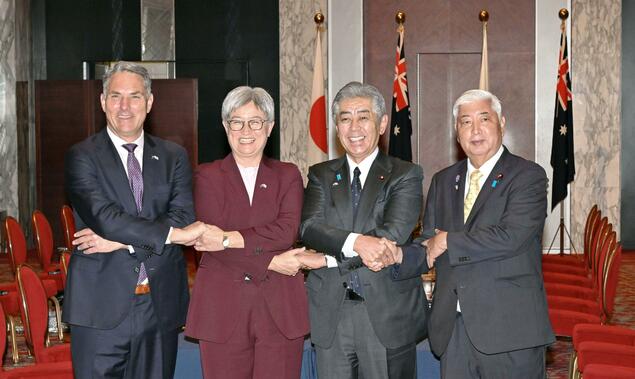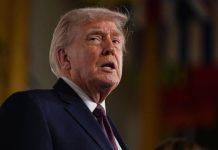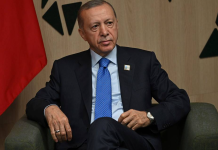TOKYO – Japan and Australia agreed to bolster their security cooperation in areas including defense equipment and cyber during talks involving their foreign and defense ministers in Tokyo on Friday, in the face of China’s assertiveness and other security challenges in the region.
Noting the “increasingly severe” regional security environment, Japanese Foreign Minister Takeshi Iwaya said at a joint press conference after the “two-plus-two” talks that the two countries will beef up their joint deterrence capabilities.
Australian Defense Minister Richard Marles said they have agreed to “elevate” what they already call a “special strategic partnership,” which will result in more exercises and expanded cooperation in logistics, cyber and other areas.
The two-plus-two meeting, held for the 12th time since the inaugural one in 2007, were also joined by Japanese Defense Minister Gen Nakatani and Australian Foreign Minister Penny Wong. They came as the two countries are deepening their relationship in hopes of playing a leading role in realizing a “free and open Indo-Pacific.”
In a major win for Japan’s efforts to export its defense equipment, Australia announced last month that it has selected a Japanese design for a future fleet of frigates.
After the talks, the two sides welcomed Australia’s selection of the upgraded Mogami-class frigate as the preferred platform for its AU$10 billion ($6.5 billion) program.
“We made this decision because this is the best frigate for Australia going forward,” Marles said. “This is the most cost-effective solution.”
“There is no country with whom we have a greater strategic alignment than Japan. We’re both democracies, we both support a global rules-based order, we are both allies of the United States,” he added.
Japan and Australia have been engaging in more frequent joint exercises and defense collaboration under a bilateral reciprocal access agreement that took effect in 2023.
The ministers also pledged to strengthen trilateral cooperation with the United States. The three countries agreed to establish a defense dialogue framework last year.
In addition, Japan and Australia agreed to cooperate on the evacuation of their nationals during emergency situations in third countries, such as when a conflict erupts.
Japan signed a similar memorandum with South Korea last year, and the accord with Australia will be the second of its kind.
A joint statement is expected to be released later in the day, which may also touch on increased cooperation regarding missiles, possibly in mind test launches, with Japan moving to acquire what it calls counterstrike capabilities, or the ability to hit enemy bases should the need arise, and Australia investing in long-range strike capabilities, a diplomatic source have said earlier.
The statement is also likely to touch on the shared concerns over any attempts to unilaterally change the status quo by force in the East and South China seas, where tensions are running high over China’s military assertiveness.
BY: The Times Union – TASS








